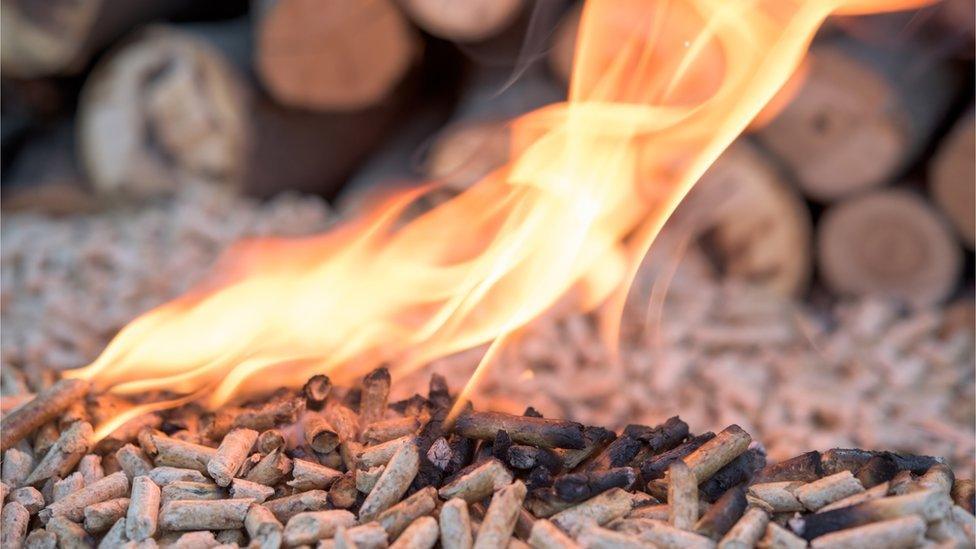Renewable Heat Incentive scheme: Senior civil servant apologises over 'very serious mistakes'
- Published

The scheme could cost taxpayers £350m over the next two decades.
A senior civil servant has apologised for lack of oversight in a renewables scheme which landed Northern Ireland's taxpayers with a massive bill.
Dr Andrew McCormick said he had "no good explanation" as to why problems were missed.
The scheme was designed to encourage businesses to install biomass boilers. There have been allegations of fraud.
These include claims that some firms ran woodchip boilers constantly just to claim a subsidy over a 20-year term.
The scheme could cost taxpayers £350m over the next two decades.
Dr McCormick, permanent secretary with the Department of Economy, was giving evidence to Stormont's Public Accounts Committee on Wednesday.
"I think we do owe an apology to the committee and others for the things that have gone wrong," he said.
"A lot has gone wrong in this case, some very serious mistakes and failings and we need to acknowledge that."
Subsidy payments
Scores of businesses have been visited by independent auditors to check more than 200 boilers.
That work had identified a number of cases which need to be referred to the regulator, OFGEM, the committee was told.
Dr McCormick said if the regulator decided there had been a breach of the scheme, they had the power to potentially stop subsidy payments.
Committee chairman Robin Swann said auditors had found evidence of what was described as "parasitic wood chip drying" where boilers were used to dry chip that was then fed back into the same boilers.
Dr McCormick said that was not acceptable.
As the department's chief accounting officer, he faced some criticism.
DUP MLA Trevor Clarke said he had "no confidence" that he had "grasped the nettle to find out what has gone wrong and to prevent this happening again".
"You are the person here who is going to be held to account. Try to give us some confidence that you have done something, that we're not going to get any more woolly nonsense about what you're going to do in the future," he said.
"I want to know what you've done now."
The committee was told that the scheme had a projected cost of £660m at the outset, but it was now expected to cost almost double, at £1.18bn.
- Published5 July 2016

- Published9 February 2016

- Published10 February 2016
